In recent years, the kitchen appliance market has seen a surge in demand for specialized products like the Panini press. This compact yet versatile tool has found its way into homes across Europe and North America, offering consumers a convenient way to enjoy the delicious taste of a grilled sandwich. As the popularity of private label brands continues to grow, we delve into the factors that make private label Panini presses attractive and explore the role of private label factories in shaping this market. Additionally, we examine current market trends and consumer preferences, along with the challenges and opportunities facing manufacturers. By highlighting successful case studies of private label Panini press brands, we gain insights into the importance of branding and marketing strategies in this dynamic industry. Finally, we offer a glimpse into the future outlook for private label Panini presses, predicting the trajectory of this niche market.
Introduction to Panini Press Market in Europe and North America
The European and North American markets have long been at the forefront of kitchen appliance innovation. Among these, the panini press has emerged as a beloved staple for casual chefs and home cooks alike. This compact appliance has found its way into countless kitchens, offering a simple and delicious way to prepare a variety of grilled sandwiches, burgers, and other savory delights. In this segment, we delve into the dynamic panini press market in Europe and North America, exploring its growth, consumer trends, and the influence of private label production.
The panini press market in Europe has been witnessing steady growth, driven by a culture that appreciates the art of casual dining and the convenience of quick yet satisfying meals. The region’s consumers are known for their preference for high-quality, yet accessible kitchenware, which aligns perfectly with the private label market. From the bustling streets of London to the cozy cafes in Paris, the demand for panini presses has been on the rise, as more and more individuals seek to add a touch of gourmet flair to their home cooking.
In North America, the panini press market has experienced a surge in popularity, particularly among the millennial and Gen Z demographics. These younger consumers are drawn to the appliance’s ease of use and its ability to create a variety of international cuisine right in their own kitchen. The rise of health-conscious eating habits has also played a role, as panini presses offer a healthier alternative to deep-fried foods often associated with fast-food chains.
The panini press’s versatility is a key factor in its appeal. These appliances can cook a range of ingredients, from classic ham and cheese to more adventurous combinations like portobello mushrooms and pesto. This has led to a diverse product landscape, with manufacturers offering various designs, sizes, and features to cater to different consumer needs.
In Europe, the market is characterized by a high level of competition, with established brands jostling for space alongside a growing number of private label options. These private label products often provide a cost-effective alternative to branded appliances, offering consumers a high-quality option without the premium price tag. The private label market has seen significant growth as a result, with more retailers opting to include these products in their inventory to attract value-conscious customers.
Similarly, in North America, private label panini presses have found a niche market, particularly in big-box retailers and online marketplaces. These products are often positioned as a great value for money, offering a reliable performance at a lower cost than branded counterparts. The trend towards private label in the kitchen appliance sector is a testament to the consumer’s preference for variety and affordability.
The design of panini presses has also evolved to keep up with market demands. Modern panini presses often come with non-stick surfaces, adjustable heat settings, and even removable plates for easy cleaning. Some models are even designed to create a crispy crust while maintaining a tender interior, mimicking the texture of a traditional sandwich shop.
In Europe, the panini press market is further influenced by the emphasis on sustainability and eco-friendly products. Consumers are increasingly looking for appliances that are not only functional but also environmentally responsible. This has led to an uptick in the demand for energy-efficient panini presses and those made from sustainable materials.
North American consumers, while also mindful of sustainability, are more driven by the appliance’s performance and ease of use. The convenience of touch controls, digital displays, and preset cooking functions has become a significant selling point for panini presses in this region.
Despite the growth and popularity of panini presses, the market is not without its challenges. Consumer expectations continue to rise, demanding more features and functionality from kitchen appliances. Additionally, the rapid pace of technological innovation means that manufacturers must stay ahead of the curve to keep their products competitive.
In conclusion, the panini press market in Europe and North America is a vibrant and evolving sector. It is driven by a demand for convenience, versatility, and quality, with private label factories playing a crucial role in meeting these demands. As the market continues to grow, it will be interesting to see how panini presses further adapt to consumer needs and preferences, and how private label options continue to carve out their place in the competitive landscape.
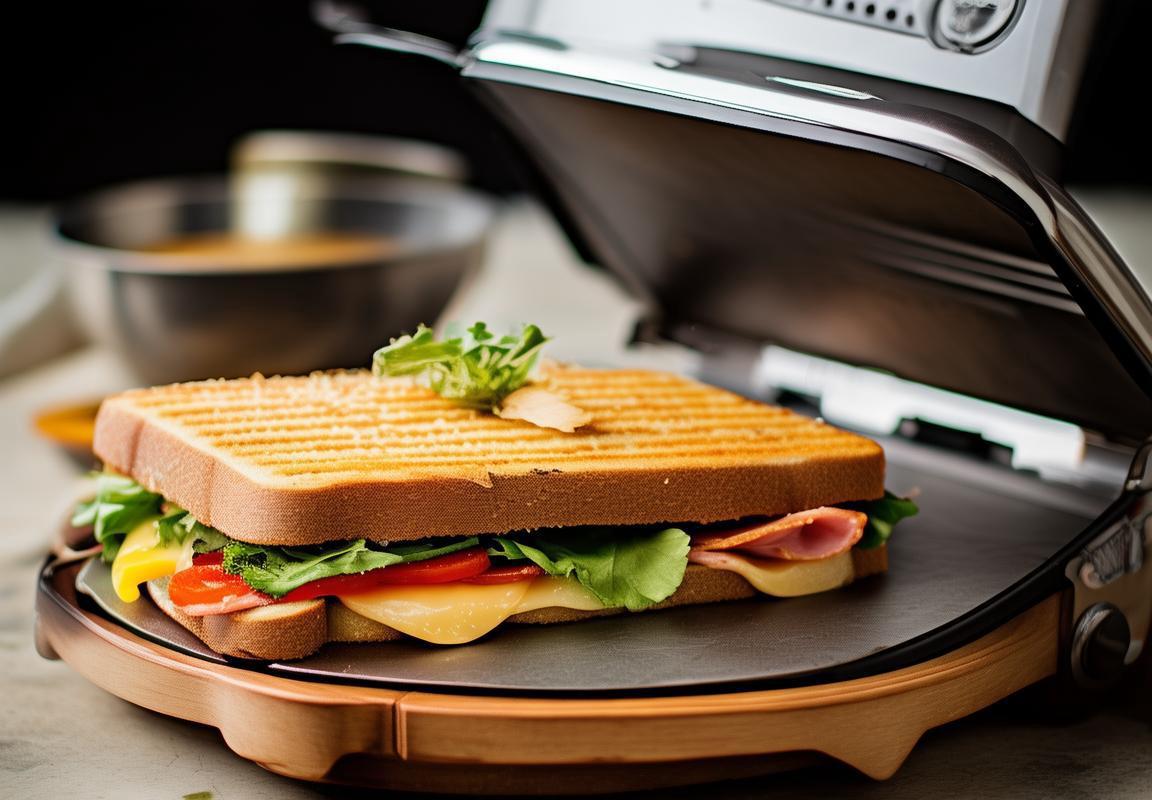
The Rise of Private Label in the Kitchen Appliance Industry
The kitchen appliance industry has witnessed a significant shift in consumer preferences, with a marked increase in the popularity of private label products. This trend is not confined to a single region but has gained traction across Europe and North America. Private label brands, once seen as a budget alternative, have now become a cornerstone of the market, offering consumers a range of benefits that traditional brands might not always provide.
Private labels have managed to carve out a niche by focusing on value for money. In an era where cost-conscious consumers are on the lookout for affordable yet quality products, private label brands have stepped in to fill this gap. These brands often operate with lower overheads, allowing them to offer competitive pricing without compromising on quality.
Another key factor contributing to the rise of private label in the kitchen appliance industry is the emphasis on convenience. Private label brands have been quick to adapt to the fast-paced lifestyle of modern consumers, offering a variety of kitchen gadgets that are easy to use and maintain. From compact toasters to multi-functional countertop ovens, these products cater to the immediate needs of consumers, who are often looking for quick and efficient solutions to their culinary challenges.
Customization is also a major draw for private label products. Many consumers appreciate the ability to choose from a range of designs, features, and functionalities that align with their personal preferences. This level of personalization is often not available with national or international brands, which tend to stick to a more standardized product line.
The rise of e-commerce has further fueled the growth of private label brands. Online platforms have provided these brands with a direct channel to consumers, bypassing the need for traditional retail partnerships. This direct-to-consumer model has not only reduced costs but has also allowed private label brands to respond more quickly to market trends and consumer demands.
In Europe, the market for private label kitchen appliances has been particularly robust, with a strong presence in countries like Germany, France, and the UK. The European consumer is known for their preference for high-quality, sustainable products, and private label brands have capitalized on this by offering eco-friendly appliances that are both cost-effective and environmentally responsible.
Similarly, in North America, the market for private label kitchen appliances has seen a surge, driven by the increasing number of consumers who are looking for value-driven options. The U.S. and Canada have seen a rise in the number of discount stores and online marketplaces that specialize in private label products, making them more accessible to a wider audience.
Private label brands have also been successful in leveraging technology to enhance their offerings. By incorporating smart features into their appliances, these brands have been able to appeal to tech-savvy consumers who are interested in integrating their kitchen appliances with their smart home systems.
Despite the growth, private label brands face several challenges. One of the biggest is the need to maintain quality standards as they scale up production. Ensuring consistency across a range of products can be difficult, especially when trying to keep costs low. Additionally, building brand loyalty can be a challenge, as private label brands often struggle to establish the same level of recognition and trust as established national or international brands.
However, the opportunities for private label brands in the kitchen appliance industry are vast. As consumers continue to seek out affordable, high-quality, and convenient products, private label brands are well-positioned to capitalize on this demand. With the right strategies in place, these brands can continue to grow and innovate, offering consumers a diverse and competitive range of kitchen appliances.

Understanding the Demand for Private Label Panini Presses
The demand for private label panini presses has seen a significant surge in recent years, reflecting a broader trend within the kitchen appliance industry. Consumers are increasingly seeking personalized and value-driven products, and private label brands are stepping up to meet this demand. Here’s a closer look at what drives this interest.
Customization and Personal TouchCustomers today are looking for products that reflect their personal style and preferences. Private label panini presses offer a unique opportunity for consumers to find a product that aligns with their taste without the premium price tag associated with branded items. The ability to customize the design, features, or even the branding of a panini press can be a strong draw for those who want a kitchen appliance that stands out.
Value for MoneyPrivate label brands often position themselves as cost-effective alternatives to well-known brands. In the case of panini presses, this means offering high-quality appliances at a more accessible price point. Consumers who are budget-conscious or looking to invest in multiple kitchen gadgets without breaking the bank find private label panini presses to be an attractive option.
Diverse Product OfferingsPrivate label manufacturers can quickly adapt to market trends and consumer needs, often offering a wider range of panini presses than their branded counterparts. This diversity includes different sizes, functionalities, and price ranges, ensuring that there’s a model to suit every consumer’s specific requirements and kitchen space.
Brand Loyalty and TrustPrivate label brands are often associated with loyalty and trust, especially when they are offered through well-known retailers or online marketplaces. Consumers who have had positive experiences with these retailers are more likely to trust the private label products they offer, including panini presses. This trust can translate into higher sales and repeat purchases.
Health and Wellness TrendsAs health and wellness trends continue to grow, consumers are looking for cooking methods that are quick, easy, and healthy. Private label panini presses cater to this demand by providing a way to cook meals with minimal oil and in a short amount of time, making them a convenient option for those following a healthier lifestyle.
Globalization and Cross-Cultural AppealThe globalization of food culture has led to a surge in interest in international cuisines, including those that feature panini and other grilled sandwiches. Private label panini presses can cater to this cross-cultural appeal, offering consumers the chance to enjoy a variety of international flavors right in their own homes.
E-commerce and Online ShoppingThe rise of e-commerce has made it easier for consumers to discover and purchase private label products. Online marketplaces provide a vast array of options, allowing customers to compare prices, read reviews, and make informed decisions about their purchases. This convenience has contributed to the increased demand for private label panini presses.
Sustainability and Eco-Friendly OptionsIn recent years, there has been a growing awareness of sustainability and eco-friendly practices. Private label brands can capitalize on this trend by offering panini presses made from sustainable materials or with energy-saving features. Consumers who are environmentally conscious are more likely to choose these eco-friendly options.
Innovation and Technology IntegrationAs technology continues to advance, private label panini press manufacturers are integrating new features and innovations into their products. From non-stick surfaces to adjustable temperature controls, these advancements cater to the tech-savvy consumer who seeks both convenience and functionality.
The demand for private label panini presses is a multifaceted phenomenon, driven by a combination of consumer preferences, market trends, and the evolving landscape of the kitchen appliance industry. Understanding these factors is crucial for manufacturers and retailers looking to capitalize on this growing segment.
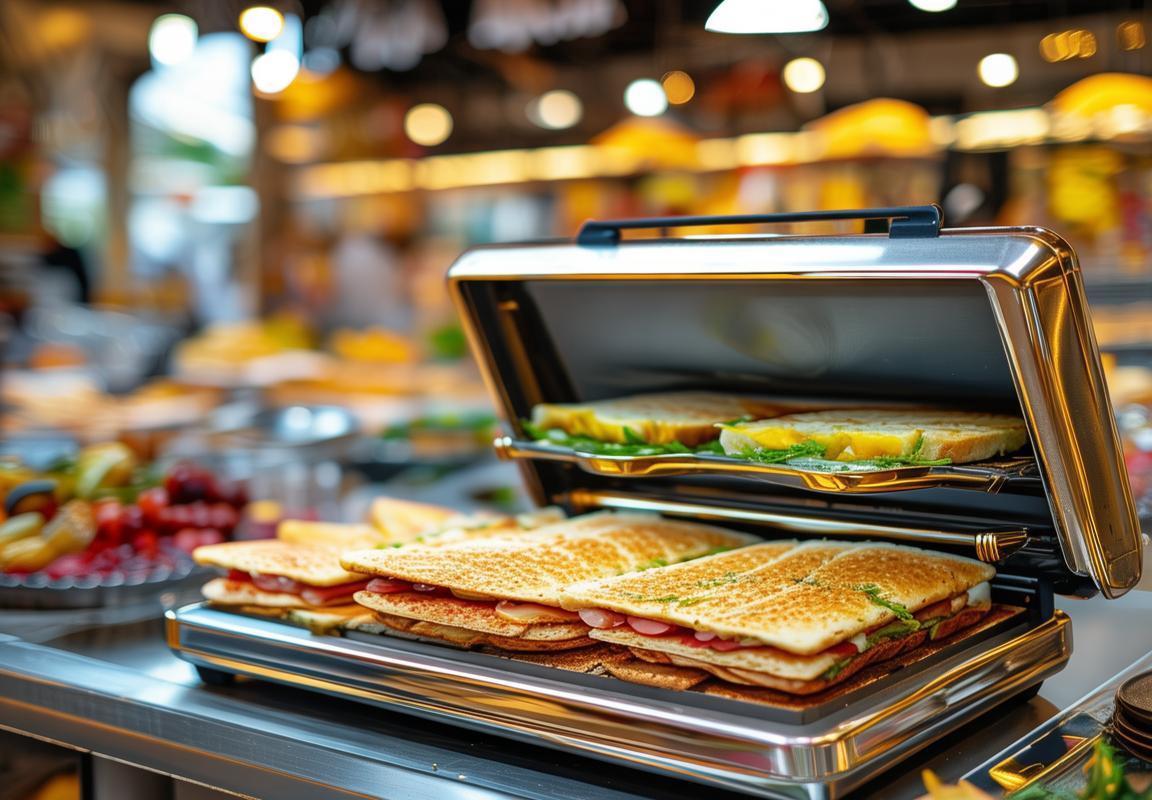
Key Features that Make Private Label Panini Presses Attractive
Private label panini presses have seen a surge in popularity due to several key features that set them apart in the kitchen appliance market. These features not only enhance the user experience but also contribute to the growing demand for these compact and versatile appliances.
The compact design of private label panini presses is a significant feature that appeals to many consumers. These presses are often lightweight and portable, making them a convenient addition to any kitchen, whether it’s a tiny apartment or a spacious home. Their sleek and space-saving profile ensures they don’t take up valuable countertop space, a crucial consideration for those with limited kitchen area.
One of the standout features of private label panini presses is their even heating capabilities. These presses are engineered to distribute heat uniformly across the cooking surface, which is essential for achieving that perfect, golden-brown crust on your sandwiches. The even heating not only improves the taste and appearance of the panini but also ensures that the ingredients inside are cooked thoroughly.
Ease of use is another feature that has contributed to the demand for private label panini presses. Many models come with intuitive controls and clear indicators, such as light-up buttons or an audible beep that signals when the press is ready to use. The lack of complicated settings or a steep learning curve makes these presses accessible to individuals of all ages and cooking abilities.
Another attractive aspect of private label panini presses is their versatility. While they are most commonly used for making paninis, many models can also grill vegetables, tofu, or even cook eggs. This multi-functionality means that consumers get more value out of their purchase, as they can use the same appliance for a variety of culinary tasks.
The non-stick surfaces of these presses are a game-changer for those who dread the hassle of cleaning up a sticky mess. The non-stick coating makes it easier to remove food particles and residue, reducing the amount of time spent cleaning and increasing the convenience of using the appliance.
Safety features are also a key selling point for private label panini presses. Many models come with safety locks that prevent the lid from closing while in use, reducing the risk of burns. Some even have cool-touch handles and bases, which ensure that users can safely handle the press even after it has been in use for an extended period.
Innovative features such as adjustable temperature settings and digital controls have also contributed to the appeal of private label panini presses. These features allow users to customize the cooking process to their liking, whether they prefer a rare or well-done sandwich. The ability to precisely control the heat is particularly important for those who are watching their diet or have specific dietary requirements.
Another feature that has caught the eye of consumers is the inclusion of various attachments or add-ons. Some panini presses come with flat-top grills, pannini toasters, or even a sandwich maker attachment, allowing users to expand their cooking options further.
Lastly, the aesthetic appeal of private label panini presses cannot be overlooked. Many models are available in a variety of colors and finishes, allowing consumers to choose a press that complements their kitchen decor. The stylish designs make these appliances not just functional but also a piece of decor in their own right.
These key features, ranging from the compact and space-saving design to the advanced safety and convenience features, are what make private label panini presses an attractive option for consumers looking for a versatile and easy-to-use kitchen appliance. The ability to create delicious sandwiches and other grilled foods at home, without the need for specialized equipment or a restaurant-quality kitchen, is a significant draw for many home chefs.
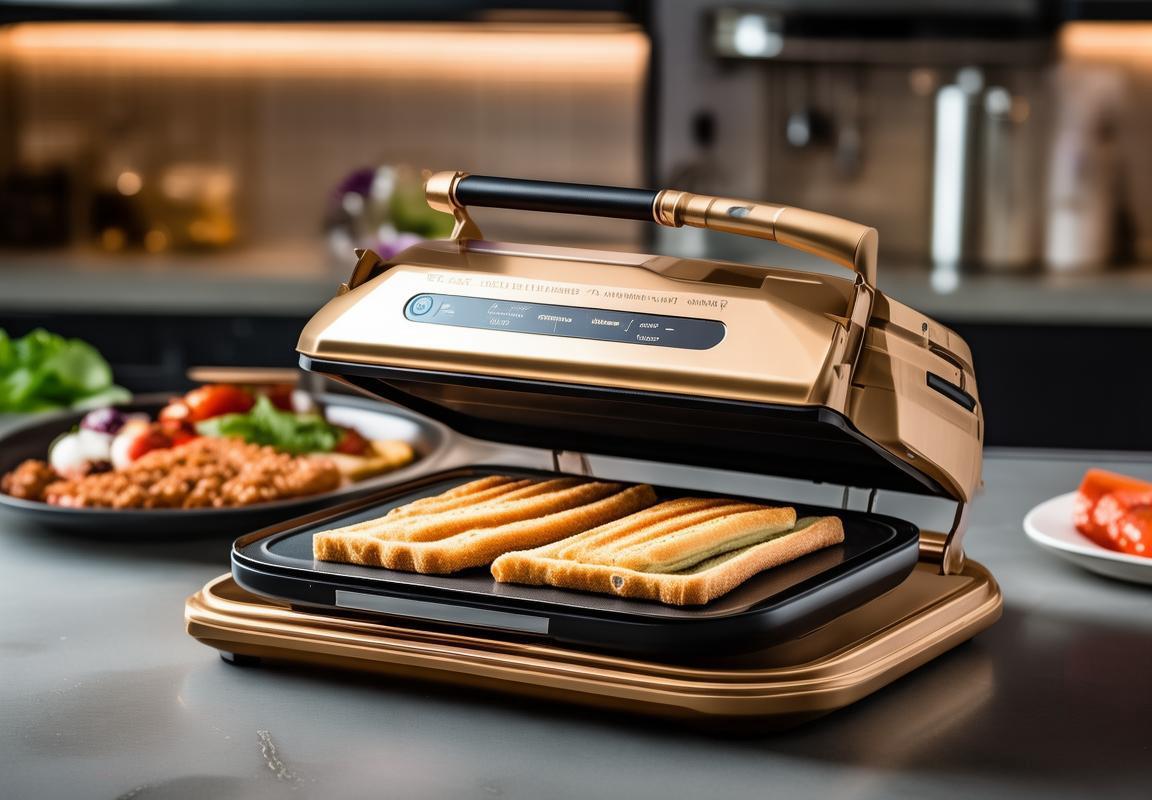
The Role of Private Label Factories in the Panini Press Market
In the competitive landscape of the panini press market, private label factories play a pivotal role, often unseen yet crucial to the success of countless brands. These factories are the backbone of the industry, offering a range of services that cater to the unique needs of businesses looking to establish their presence in the market. Let’s delve into the multifaceted role these factories play.
Private label factories are adept at understanding the nuances of the panini press market. They are well-versed in the latest trends, consumer preferences, and technological advancements that drive the demand for these appliances. By staying ahead of the curve, these factories ensure that the products they produce are not only in line with market expectations but also capable of standing out in a crowded marketplace.
One of the primary roles of private label factories is to offer customization. Brands often seek to differentiate themselves by offering products that are tailored to specific market segments or customer needs. Private label factories can modify existing panini press designs, incorporate unique features, or even create entirely new models from scratch. This flexibility allows brands to cater to niche markets and create a product that resonates with their target audience.
Quality control is another critical aspect where private label factories excel. These factories are equipped with state-of-the-art manufacturing facilities and stringent quality assurance processes. From the selection of materials to the final assembly, every step is meticulously monitored to ensure that the panini presses meet the highest standards of quality. This dedication to quality not only satisfies customers but also builds trust in the brand that chooses to work with these factories.
Efficiency is a hallmark of private label factories. With large-scale production capabilities, these factories can handle large orders with ease, ensuring timely delivery to clients. This efficiency is especially important in the panini press market, where seasonal demand and time-sensitive promotions can significantly impact sales. By streamlining the production process, private label factories help brands meet their distribution schedules without compromising on quality.
Cost-effectiveness is a driving force behind the popularity of private label factories. These factories benefit from economies of scale, which means they can purchase materials in bulk and invest in efficient production methods. This allows them to offer competitive pricing to their clients, making it more affordable for brands to enter the market or expand their product lines. The cost savings are often passed on to the consumer, making high-quality panini presses more accessible.
Private label factories also serve as a testing ground for new technologies and innovations. They are often the first to adopt new manufacturing techniques or materials that can enhance the performance and durability of panini presses. By being at the forefront of technological advancements, these factories enable brands to introduce cutting-edge products that can attract tech-savvy consumers and set them apart from competitors.
Sustainability is a growing concern in today’s market, and private label factories are responding by incorporating eco-friendly practices into their operations. From sourcing sustainable materials to reducing waste during production, these factories are committed to minimizing their environmental footprint. This not only aligns with the values of environmentally conscious consumers but also positions brands as responsible corporate citizens.
Furthermore, private label factories provide an array of value-added services that go beyond the manufacturing of panini presses. They can assist with packaging design, branding, and even marketing strategies. This comprehensive support allows brands to focus on their core competencies while leaving the intricacies of production and distribution to the experts.
In the panini press market, private label factories also play a role in market research and trend analysis. They gather data on consumer preferences, market dynamics, and emerging trends, which they then share with their clients. This information is invaluable for brands looking to stay relevant and adapt their product offerings to changing market conditions.
Lastly, private label factories often act as a bridge between brands and retailers. They understand the needs of both parties and can facilitate smooth transactions that benefit everyone involved. This intermediation can simplify the supply chain and ensure that products are available where consumers are most likely to purchase them.
In summary, private label factories are instrumental in the panini press market. They provide customization, maintain high-quality standards, ensure efficiency, offer cost-effective solutions, foster innovation, promote sustainability, and provide comprehensive support to brands. Their role is multifaceted, and without them, the panini press market would lack the diversity and innovation that it currently enjoys.
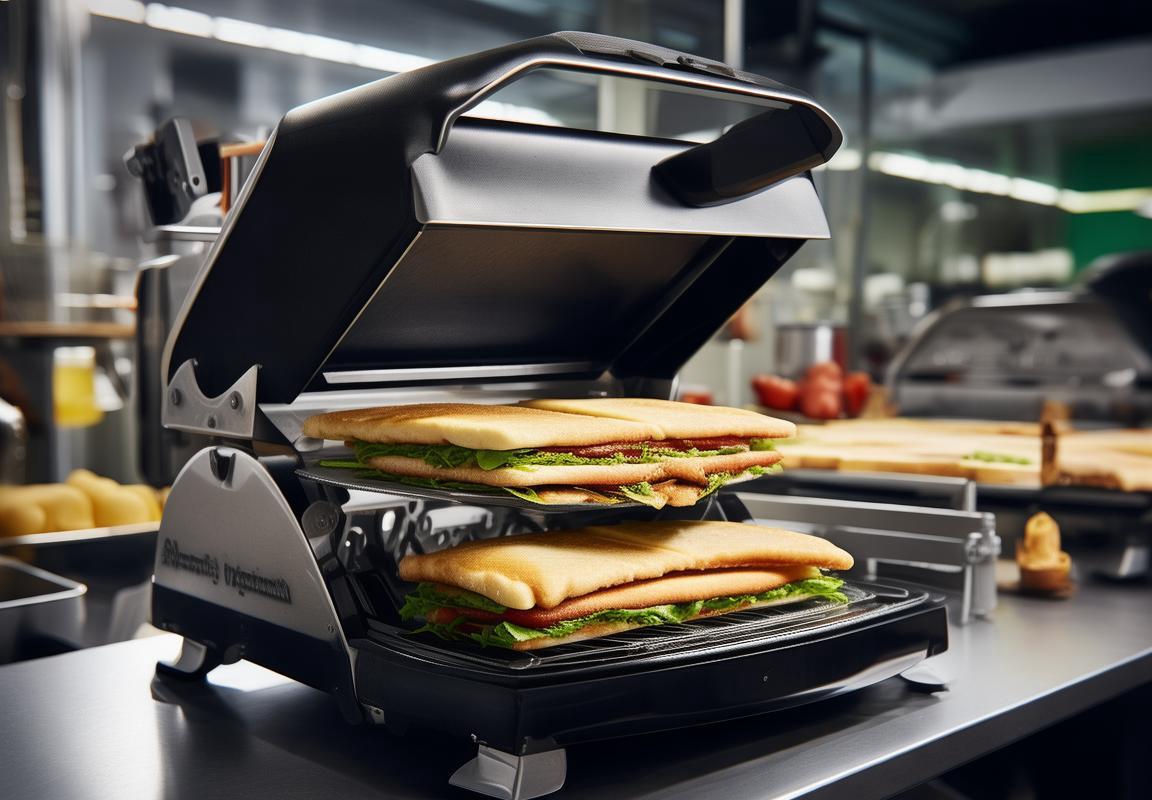
Market Trends and Consumer Preferences in the Region
In the dynamic landscape of the European and North American kitchen appliance markets, several trends and consumer preferences are shaping the demand for various products, including private label panini presses. Here’s a closer look at some of these key trends and preferences:
Consumers are increasingly seeking convenience in their daily lives, and this extends to kitchen appliances. The popularity of compact, easy-to-use devices like panini presses has surged as they cater to the quick yet satisfying meal preparation that busy lifestyles demand.
Health consciousness is on the rise, with consumers gravitating towards appliances that can help them create healthier meals at home. Private label panini presses often come with adjustable heat settings, allowing users to control the level of char and the doneness of their sandwiches, thus enabling a greater control over ingredients and cooking methods.
There’s a significant trend towards customization and personalization in the kitchen appliance sector. Consumers are looking for appliances that can cater to their specific needs, whether it’s a particular type of bread or a unique sandwich recipe. Private label brands can capitalize on this by offering a variety of press models that can accommodate different preferences.
The demand for eco-friendly products has never been higher. Consumers are not just looking for appliances that are energy-efficient but also those that are produced in an environmentally sustainable manner. Private label factories that prioritize green manufacturing processes and use recyclable materials are likely to gain a competitive edge.
Smart kitchen technology is becoming increasingly integrated into everyday appliances. While high-end smart features may not be a priority for all consumers, even basic connectivity options like Bluetooth or Wi-Fi capabilities can be appealing. Private label panini presses with such features can attract tech-savvy consumers who appreciate the integration of their kitchen tools with smart home systems.
In the realm of aesthetics, consumers are looking for appliances that complement their kitchen decor. The design of private label panini presses has evolved to include sleek, modern aesthetics that can blend seamlessly with contemporary kitchen styles. This trend is driving the demand for stylish, yet functional appliances.
The rise of social media and influencer marketing has also had a significant impact on consumer preferences. People are looking for appliances that not only perform well but also look good on camera. Private label brands that understand the importance of visual appeal and can create products that are as photogenic as they are practical are likely to resonate with this audience.
As the gig economy grows, so does the need for portable and lightweight kitchen appliances. Private label panini presses that are designed to be easy to transport or store can appeal to those who live in smaller spaces or who frequently move.
The demand for variety in sandwich options has expanded, with an interest in international flavors and unique fillings. Private label factories that can offer panini presses that can handle different types of bread and accommodate an array of ingredients are tapping into this diverse market.
Finally, the concept of meal prep has become more popular, with consumers looking for appliances that can help them prepare meals in bulk for the week. Private label panini presses that can quickly cook multiple sandwiches at once can be particularly attractive to those interested in meal prepping.
These trends and preferences reflect a changing landscape in the kitchen appliance market, where private label panini presses are finding their place among a wide array of options that cater to the evolving needs and tastes of consumers in Europe and North America.
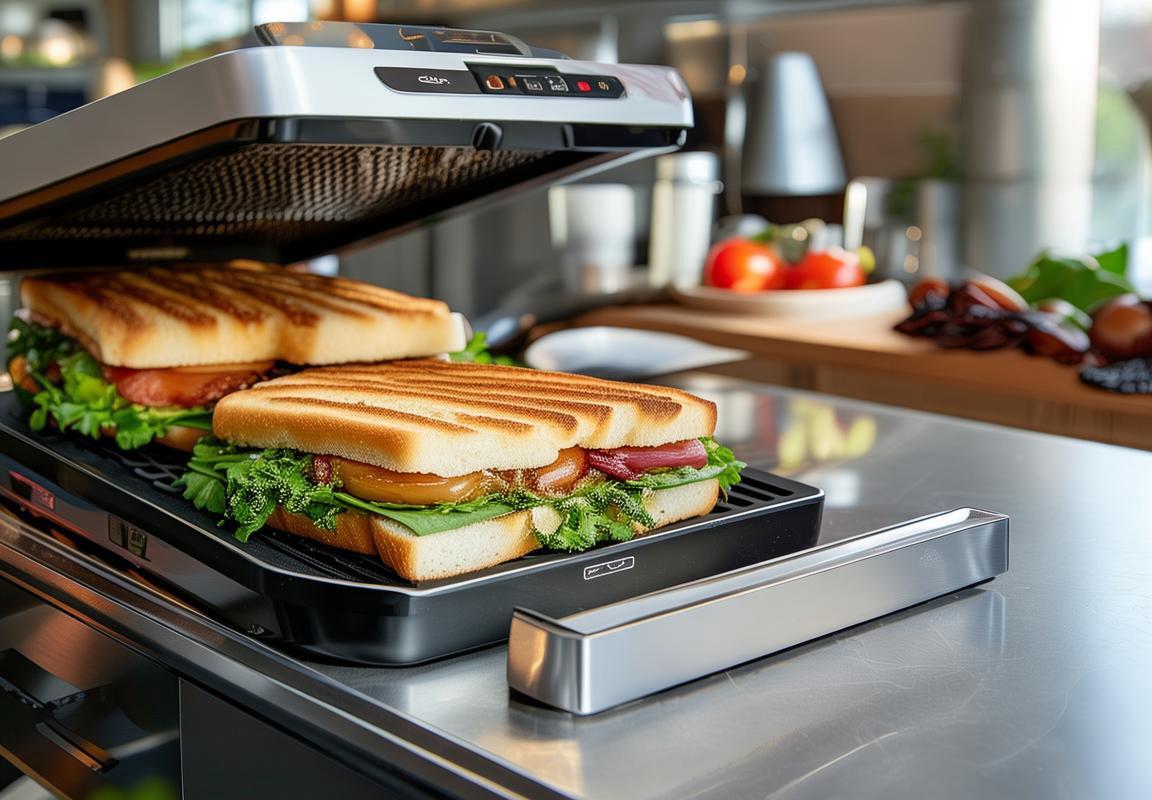
Challenges and Opportunities for Private Label Panini Press Manufacturers
The competitive landscape for private label panini press manufacturers is marked by a blend of challenges and opportunities that shape the industry’s trajectory. Navigating these dynamics is crucial for brands looking to establish a presence in the market.
Manufacturers face the challenge of standing out in a crowded market where generic products can be easily confused with established brands. To carve out a niche, they must focus on innovation and quality control. This means investing in research and development to create unique features that differentiate their panini presses from others.
One significant challenge is the need for cost-effectiveness without compromising on quality. Private label brands often operate on tight profit margins, making it essential to find efficient production processes and supply chains. This balancing act requires a keen understanding of material sourcing, manufacturing techniques, and labor costs.
On the flip side, there are ample opportunities for growth. The rise of health-conscious consumers has sparked a demand for healthier food options, and panini presses are perfectly suited for making quick, homemade sandwiches with fresh ingredients. This trend opens doors for manufacturers to develop models that cater to this market segment.
Moreover, the globalization of food culture has introduced new flavors and ingredients that can be incorporated into panini press designs. Manufacturers can capitalize on this by offering a variety of press options that can handle different types of breads, cheeses, and fillings, thus appealing to a broader consumer base.
Another opportunity lies in the integration of smart technology. As consumers become more tech-savvy, there’s a growing interest in kitchen appliances that offer convenience and connectivity. Private label brands can leverage this by incorporating features like digital temperature controls, programmable settings, and even Bluetooth connectivity for remote monitoring.
The challenge of market saturation is mitigated by the ability to tailor products to specific customer needs. For instance, certain regions may have a preference for larger sandwiches, while others might favor compact, portable models. Manufacturers can respond to these regional differences by offering a diverse range of products.
Sustainability is also a key consideration. Consumers are increasingly looking for eco-friendly products, and private label panini press manufacturers can respond by using recycled materials, energy-efficient designs, and sustainable production practices. This not only aligns with consumer values but can also be a selling point in marketing campaigns.
Moreover, the rise of e-commerce has expanded the reach of private label brands. Manufacturers can tap into online marketplaces to sell directly to consumers, bypassing traditional retail channels. This direct-to-consumer approach allows for better control over pricing and brand image.
The challenge of distribution also presents an opportunity. By establishing strategic partnerships with retailers and e-commerce platforms, manufacturers can ensure their products are accessible to a wider audience. This requires a nuanced understanding of distribution logistics and the ability to adapt to changing retail landscapes.
Lastly, the opportunity to engage with consumers through social media and influencer marketing cannot be overstated. By fostering a community around their brand, manufacturers can build loyalty and encourage repeat purchases. This engagement can also provide valuable feedback that informs product development and marketing strategies.
In summary, while challenges such as cost management, differentiation, and market saturation persist, the opportunities for private label panini press manufacturers are vast. By focusing on innovation, sustainability, and consumer engagement, these brands can carve out a successful position in the market.
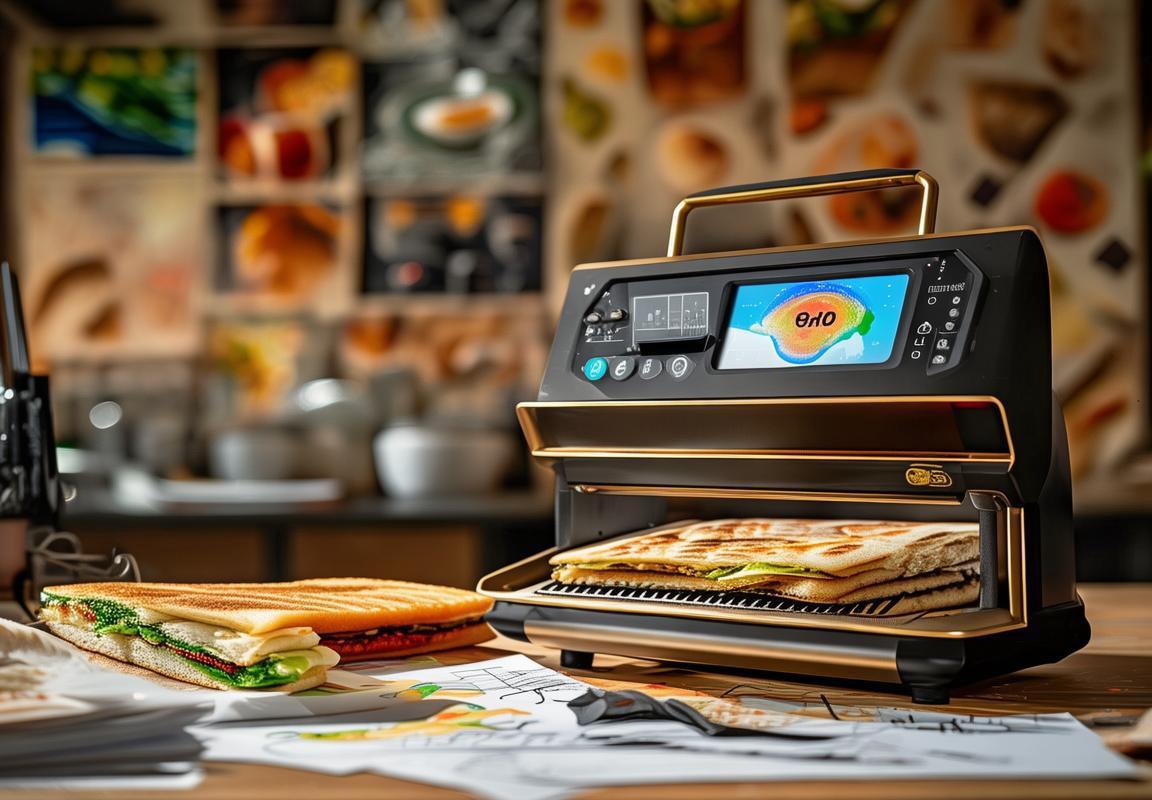
Case Studies: Successful Private Label Panini Press Brands
In the competitive world of private label kitchen appliances, several brands have managed to carve out a niche for themselves with their panini presses. Let’s delve into a few case studies that showcase the success of these private label brands.
The Brand that Redefined SimplicityOne private label brand that has gained traction is known for its minimalist design and user-friendly features. Their panini press, with its sleek black finish and easy-to-use controls, has become a favorite among consumers seeking a straightforward and efficient appliance. The brand’s marketing strategy focused on the ease of operation and quick cooking times, resonating with busy households looking for convenience without compromising on quality.
The Eco-Friendly InnovatorAn emerging private label brand has capitalized on the growing demand for sustainable and eco-friendly products. Their panini press is crafted from recycled materials and features a non-stick surface that requires less oil, making it both environmentally friendly and health-conscious. This brand’s commitment to sustainability has not only attracted environmentally conscious consumers but also gained them positive media coverage, enhancing their brand image.
The Global GourmetA private label panini press brand that has made a name for itself by offering a variety of international press patterns has captured the hearts of food enthusiasts. From the classic Italian ridged pattern to the Swiss-style holes for a crispy crust, this brand’s product range caters to a diverse consumer base. Their focus on culinary exploration and the ability to create a wide array of international dishes has set them apart in the market.
The Market Leader with a Winning FormulaOne of the most successful private label panini press brands has maintained its top position by consistently delivering on quality and innovation. Their presses are equipped with advanced features such as adjustable heat settings, indicator lights, and non-slip feet. The brand has also invested in extensive market research to understand consumer needs, leading to products that are both reliable and adaptable to different cooking preferences.
The Boutique Brand with a StoryA boutique private label panini press brand has managed to stand out by weaving a narrative into their product. Each press is handcrafted with attention to detail, and the brand shares the story behind the artisans and the materials used. This emotional connection with the product has created a loyal customer base that values the brand’s commitment to craftsmanship and tradition.
The Online Retail SensationAn online-only private label panini press brand has taken advantage of the digital marketplace to reach a wide audience. By offering competitive pricing and free shipping, they have become a go-to destination for budget-conscious shoppers. The brand’s social media presence is robust, with engaging content that encourages user-generated reviews and shares, further driving sales and brand loyalty.
The Global Expansion StarA private label panini press brand that started in one country has expanded globally by partnering with local retailers and online platforms. Their success lies in their adaptability to different market trends and consumer preferences, ensuring that their product is a hit across the globe. The brand’s international expansion strategy includes localized marketing campaigns and packaging, making them feel like a local favorite everywhere.
These case studies highlight the diverse strategies that private label panini press brands have employed to achieve success. From design and innovation to sustainability and storytelling, these brands have managed to carve out a unique space in the market, proving that with the right approach, even a private label product can become a household favorite.
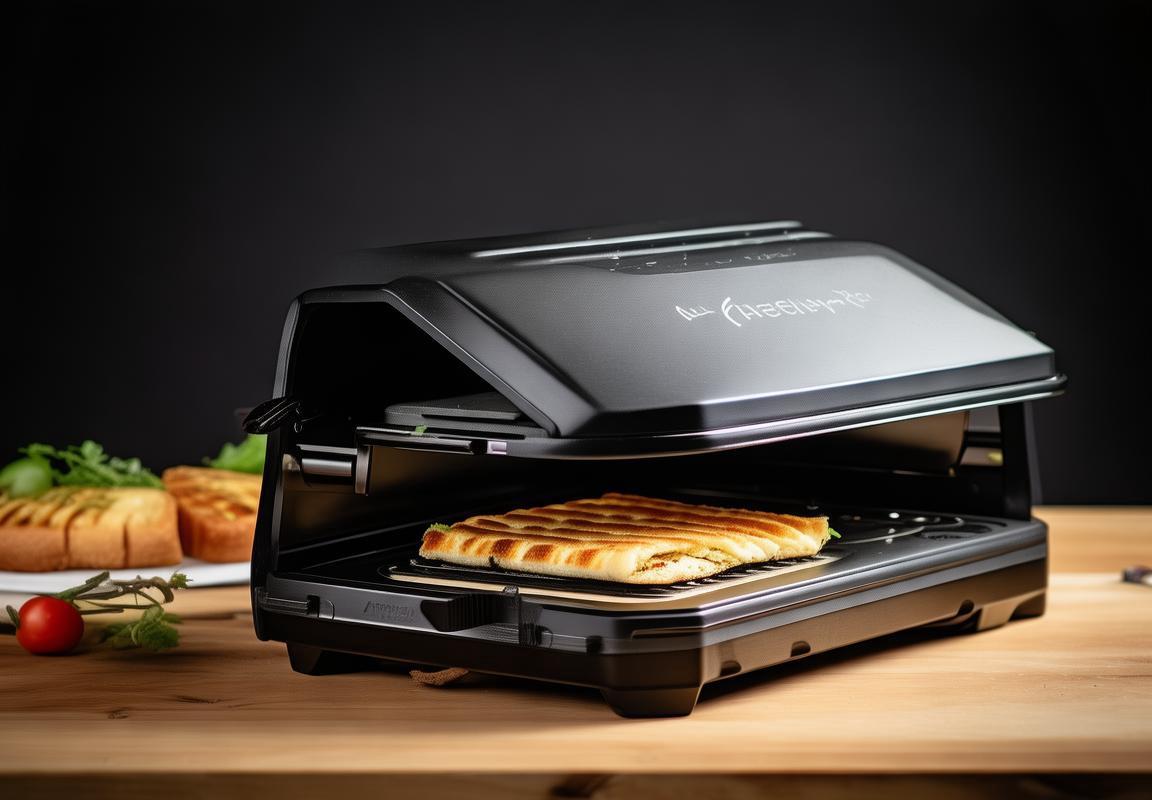
The Importance of Branding and Marketing Strategies
In the competitive landscape of the kitchen appliance market, branding and marketing strategies play a pivotal role in shaping the success of private label panini press brands. Here’s a closer look at why these strategies are crucial:
Branding: Crafting a Unique IdentityCreating a strong brand identity is essential for private label panini press manufacturers to stand out in a crowded market. A brand’s identity goes beyond just a logo or name; it encompasses the values, mission, and personality that resonate with consumers. For instance, a brand might emphasize quality and innovation, offering a premium experience with high-tech features.
Marketing: Reaching the Right AudienceEffective marketing strategies are key to reaching the target audience. Understanding who your customers are and what they value is the first step. For private label panini press brands, this often means catering to health-conscious consumers who seek convenient and healthy cooking solutions. By leveraging digital marketing, social media campaigns, and influencer partnerships, these brands can effectively communicate their message and engage with potential buyers.
Customer Experience: The Heart of BrandingThe customer experience is a critical component of branding. A private label panini press brand that focuses on exceptional customer service and a seamless purchasing journey can build loyalty and repeat business. This includes everything from the initial interaction on a website or social media platform to the after-sales support and warranty services offered.
Influencer Collaborations: Leveraging PopularityCollaborations with influencers have become a popular marketing tactic. Influencers with a strong following in the culinary or lifestyle sectors can showcase the benefits of private label panini presses to their audience. This not only exposes the product to a wider audience but also lends credibility and trust to the brand.
Digital Marketing: Navigating the Online WorldIn today’s digital age, a robust online presence is non-negotiable. Private label panini press brands must invest in SEO, content marketing, and paid advertising to ensure their products are easily discoverable online. A well-optimized e-commerce site, engaging blog posts, and informative videos can all contribute to a brand’s visibility and authority.
Product Differentiation: What Sets You ApartIn a market filled with similar products, differentiation is key. Private label panini press brands can stand out by offering unique features, such as adjustable heat settings, non-stick surfaces, or compact designs. Highlighting these aspects in marketing materials can attract consumers looking for something that stands out from the competition.
Packaging: The Unseen Brand AmbassadorPackaging is often the first physical touchpoint a consumer has with a product. High-quality, attractive packaging can create a positive first impression and encourage purchase. It’s also an opportunity to reinforce brand values and communicate the product’s benefits.
Customer Reviews and Testimonials: Building TrustPositive customer reviews and testimonials can significantly influence purchasing decisions. Private label panini press brands should actively encourage satisfied customers to leave feedback and share their experiences. This not only builds trust but also provides social proof that can sway potential buyers.
Event Sponsorship and Partnerships: Expanding ReachSponsoring events or forming partnerships with relevant organizations can extend a brand’s reach and visibility. For example, a private label panini press brand might partner with a health and wellness conference or a cooking competition series to showcase its products and align with the event’s values.
Email Marketing: Keeping the Connection AliveEmail marketing remains a powerful tool for maintaining relationships with customers. Regular newsletters, exclusive offers, and product updates can keep the brand top of mind and encourage repeat purchases. Personalization in email campaigns can also help tailor messages to individual preferences.
Social Responsibility: A Modern Brand ValueConsumers are increasingly looking for brands that align with their values, including social responsibility. Private label panini press manufacturers can enhance their brand image by engaging in sustainable practices, supporting local communities, or contributing to charitable causes.
In conclusion, the importance of branding and marketing strategies for private label panini press brands cannot be overstated. By focusing on these areas, manufacturers can build a strong brand identity, reach their target audience effectively, and ultimately drive sales and customer loyalty.

Conclusion: The Future Outlook for Private Label Panini Presses
In the ever-evolving landscape of the kitchen appliance market, private label panini presses have emerged as a compelling segment. As we delve into the future outlook, it’s clear that several factors will shape the trajectory of this niche. The rise of health-conscious consumers, the convenience factor, and the integration of technology into everyday cooking tools are just a few of the elements that will drive the growth of private label panini presses. Moreover, the sustainability and customization trends are poised to influence the market dynamics. Despite the challenges, opportunities for innovation and differentiation continue to abound, promising a dynamic future for private label panini presses.